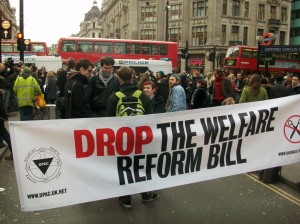
 First of all I’m not going to pretend that this is an academic study of Thatcherism, this is my own personal take on what I recall of her government and it long-term effects. I am writing this as my own contribution to the discussions being had about her legacy since her death. It is also a reaction to a trend I see developing of some people now describing themselves as ‘Thatcherite’, some of whom may not realise the ramifications of appropriating such a tag.
First of all I’m not going to pretend that this is an academic study of Thatcherism, this is my own personal take on what I recall of her government and it long-term effects. I am writing this as my own contribution to the discussions being had about her legacy since her death. It is also a reaction to a trend I see developing of some people now describing themselves as ‘Thatcherite’, some of whom may not realise the ramifications of appropriating such a tag.
To assess such a political figure as Margaret Thatcher it is problematic since it was never possible to be neutral about her; in many ways she was deliberately provocative in her pronouncements and always combative in her manner. It was inevitable then that her death would polarise people as much as her political career had. People either loved or hated her and in many ways I doubt that she would have had it any other way.
There is a tendency in British politics to laud those who display strength and grandeur and these are two qualities that many believe that Margaret Thatcher had. But what is strength? Thatcher was certainly brutally forthright about her opinions and bloody-minded but she also had a marked inability to listen to even her own ministers, let alone the people she was leading – stories about this were legion during her premiership but seem to have been forgotten now. Grandeur? Well Margaret Thatcher certainly has delusions of that.
Margaret Thatcher was famously a grocer’s daughter and never forgot it. Proud of the fact and would often regale interviewers about the lessons she had learnt from her father. Thatcher was grounded in the petite bourgeois and displayed many of the most stereotypical qualities of it. This was highlighted by that phoney posh accent she had, something that even as child reminded me of one of my aunties utilising her ‘telephone voice’. She was the absolute embodiment of petite bourgeois prejudices; the snobbish deferential voter; the I-vote-Tory-because-I’m-better-than-you-lot type; the mortal fear of anybody who works with their hands; the sheer terror of the ‘foreigner’; the pathological hatred of somebody being better off than you; the morbid infatuation with ‘hard-work’ and greed for its own sake. Thatcher even went as far as joining the Conservative Party and eventually becoming its leader by ‘pulling up her own boot-straps’ (to coin a favourite phrase of hers) and marrying into money. In fact her husband Denis subsidised her entire political career, and benefitted from it businesswise.
Margaret Thatcher’s background marked her out from the rest of the Conservatives who resented this upstart among their ranks, and this didn’t stop when she was elected Prime Minister – this was made quite obvious by the relish they displayed by tearing her off her pedestal. However that relatively modest background did make her a remarkably astute politician; she had an instinctive insight into how people from those lower classes thought. She was a born opportunist in the most opportunistic of British political parties. The Conservative Party would support her for as long as those instincts were present, but for no longer.
The 1970s, we have been told, were a period of economic strife and this was all the fault of the Trades Unions who were always going on strike. This, it will surprise no one, is a distortion of the way more complicated facts. It was precipitated by a massive oil-crisis in 1973 and this not only had an impact on the UK but on an international scale. For proof one only needs to look at the newspapers, magazines and even popular culture of the period to see how often this is referred no only here, but in the USA and Europe. However we are still expected to believe it was old those evil TU’s fault for wanting too much money.
During Edward Heath’s Conservative government of the 1970-74 many fundamentally important things happened that would later prove influential to Thatcher. Most famously her own profile rose during the ‘Thatcher The Milk Snatcher’ debacle and so she experienced for the first time the full glare of the spotlight. Thatcher also witnessed Heath’s own attempts to curb TU power with the unsuccessful Industrial Relations Act of 1971 (repealed in 1974 by the Wilson government). It was two Miners’ Strikes that would mortally wound the Heath government, the second of these led to Heath going to extraordinary measure of implementing the three-day week – Thatcher would never forgive the miners. Heath is most remembered for leading Britain into the EEC and this decision has troubled the Conservative Party ever since. He also oversaw the height of the troubles in Northern Ireland, most notoriously, the Bloody Sunday massacre. All of these factors would indelibly mark out the character of Thatcher’s own leadership style.
Britain had up until recently been a colonial power, of course, and was only too aware that it wasn’t any more. This fact traumatised the British psyche. We are still experiencing to the long-term effects of this today but in the 1970s it was still raw. People were brought up to believe that the UK was the ‘empire where the sun never sets’, maps of the world were still hanging in schools covered in the red of British colonialism.. To be born British was supposed to mean that were one of the elite, even if you were barely able to afford to eat and were treated like scum by your ‘betters’. At least you were still from Blighty! That had to stand for something, eh? We won the war! Could all of this have been a lie?
This was reflected in the politics of the time; the National Front was beginning to seem very influential. This bottom-feeding political party tapped into those feelings of inadequacy some people were having and were only too happy to scapegoat immigrants and other marginalised groups for British woes, openly using racist terminology that would turn most people’s stomach today. Let’s not forget that this was the era of Enoch Powell; his recent ‘rivers of blood’ speech still ringing in the ears like some cancerous tinnitus.
This was the environment that fostered the rise of Margaret Thatcher. She told people we could make Britain great again. Worried about those sweary punk rockers? Well, don’t worry Maggie’s going to bring good old Victorian values, that will set them straight. You hate all those ‘foreigners’ flocking over here and stealing your jobs? Well, don’t worry Maggie’s not going to put up with that, she’ll send them all home and then close our borders. Sick of being inconvenienced by strikes? Those layabouts are going to get what’s coming to them as well. What about those lazy bastards down our street who can’t even be bothered to wok but are living lives of luxury? Well, they’ll have to get on their bikes and look for work or starve. Thatcher was lead us back into that fantasy version of what Victorian England was like, where everything was simpler, people knew their place and it was the richest place on earth.
This is the essence of Thatcher’s vision; a mix of prejudice, fantasy and – lest we forget – the dystopian economic philosophy of Friedrich Hayek and his most famous acolyte Milton Friedman. Thatcher, the so-called patriot, would use Britain as a laboratory to try-out Friedmanism and although some would profit from it – mostly in the short-term – the interests of the vast majority would be sacrificed. This was economics at its most psychopathic and even though Thatcher was warned about the dangers, she ploughed ahead regardless.
Thatcher broke away from the Post-War Consensus but didn’t replace it with anything meaningful or constructive. Her own period of government didn’t successfully result in any grand designs neo-liberal, Keynesian or otherwise; that was left to the governments that followed (even New Labour). Her own attempts at Friedmanism were eventually scrapped, hampered by her own destructive impulses, which merely resulted in near economic meltdown. She did unfortunately succeed in making ‘socialism’ a dirty word on this side of the Atlantic for the first time. This is an example of Thatcher’s gift – if it can be called that – for the negative. Thatcherism is really about negation, being defined by what it is against than what it is for. All of the things it claims to support fall apart when analysed too deeply. Thatcher’s government achieved nothing. Style over substance
Tory election posters trumpeted that ‘Labour isn’t working’ in 1979, but Thatcher’s Tory government tripled unemployment to three million in just four years (and even that figure was famously massaged down). The resulting welfare bill meant that her entire tenure in government was marked by a persistent economic deficit, which was not even alleviated by her desperate selling off of state assets like British Telecom, or the profits generated by North Sea Oil.
It comes as no surprise then that her government’s other promises were never met either. While in opposition her party had derided Labour’s inability to seize control of inflation which was as at 10%, promising that they could if given the chance. This didn’t happen and in fact inflation continued to increase in the short term. By the time Thatcher left office it was nearly back at 10% (9.7%).
Her period government was bookended by riots. Her tenure as Prime Minister began with riots caused by unemployment, heavy-handed policing, housing shortages etc and ended with riots inspired by the Poll Tax. Today’s praise of Thatcher has to be counterbalanced by the acceptance that this was not a popular or successful Prime Minister in any real terms. This was the first Prime Minister whose government understood and mastered the art of popular culture – her political career resembled an ad campaign and had as much basis in reality. The real legacy was the personality cult that British politics has become. That and her divisiveness.
For the rest of us, growing up working-class in the 1980s was depressing. Everybody you knew seemed to be unemployed. Margaret Thatcher claimed to be on the side of people who worked hard but seemed hell-bent on making those who were working redundant and those out-of-work unemployable. We were told jobs were out there but the reality couldn’t have been more different. Thatcher also claimed she was on the side of the entrepreneur and this also rang hollow. Shops were being boarded up, factories and other businesses closed down on a moreorless constant basis. If you wanted to start a business you could go on the Enterprise Allowance Scheme of course, but you had to have a grand in the bank to secure your £40 a week from the benefits people (yes, the same people who supplied your income support) to do it. If anything illustrates Thatcher’s tenuous grip on reality that does.
The old apprenticeships were replaced the crass cynicism of Youth Training Schemes or Job (later renamed Employment) Training Schemes, both of which left you only qualified to join another training scheme in six months, but allowed your labour to be exploited by the deeply unpleasant charlatans who ran such things.
All of this was part of the plan of course. Thatcher was declaring all-out-war on the working-class. This was the one thing they were successful at; by the time she and her colleagues left government the image of the working-class had – at least in the general public’s perception – changed beyond recognition. It now conjured up visions of an ‘underclass’; Wayne and Waynetta Slob, the family from Bread. A fictional caricature that eventually fed into itself.
No politician has showed more contempt for people who work with their hands than Margaret Thatcher. This is the true ‘British disease’. It was therefore inevitable that those she hated the most were the ones whose hands got the dirtiest, that is; the miners. As we have seen the Conservatives had already sworn vengeance on them. During the riots earlier in Thatcher’s premierships the public had grown used to sights of the ‘tooled-up’ coppers, with riot-shields, batons, visored helmets. These paramilitary police were used mercilessly against the miners and their families. Margaret Thatcher did more than other Prime Minister to blatantly politicise the police.
The media built a hate campaign against the miners, particularly Arthur Scargill who was merely telling the truth about the government’s plans and doing the job of fighting for the people he was employed by. Those of us who were properly informed knew that the strike was about pit closures that would (and have) destroyed communities but it didn’t seem to matter. Margaret Thatcher saw his as a war akin to the Falklands; propaganda, triumphalism and contempt for the truth was the order of her day
The miners were merely the most visible of her hate figures. Practically every industry that had created wealth for Britain was dragged under by her policies, causing vast unemployment to be embedded deep in many communities. This was not only economically damaging, the societal damage has been long-lasting.
One of the most repeated Thatcher quote has been her claim that ‘there is no such thing as society’. Let’s look at what this revealed about her. Certainly it reveals that had little ability to perceive of something external to her immediate experience. It also exposes Margaret Thatcher’s weird isolationism, her belief that she alone could be right. To her, individualism went only as far as herself and by the end of her premiership she was even identifying herself as the embodiment of the nation in the same way that absolutist rulers used to, in her use of the royal ‘we’. Margaret Thatcher could not perceive there being any such thing as society because her own limited experience was all that mattered to her, and informed her every action.
If only Thatcherism could be have died along with her. If only people realised what an empty construct it actually was and is.
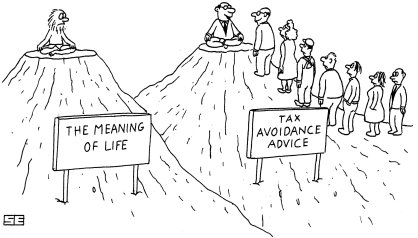 David Cameron cheated on his taxes. He avoided paying his fair share of them. He might have done so legally, but guilty of Tax Avoidance he is, and people are justifiably annoyed at him. The Tories, rather than accept that people have a right to be pissed off at their PM, have responded in their usual cavalier way, and become angry at us for being critical of their leader. They have put it down to people being jealous of Cameron’s wealth. Yes, it’s all because we have become victims of the Green Eyed Monster.
David Cameron cheated on his taxes. He avoided paying his fair share of them. He might have done so legally, but guilty of Tax Avoidance he is, and people are justifiably annoyed at him. The Tories, rather than accept that people have a right to be pissed off at their PM, have responded in their usual cavalier way, and become angry at us for being critical of their leader. They have put it down to people being jealous of Cameron’s wealth. Yes, it’s all because we have become victims of the Green Eyed Monster.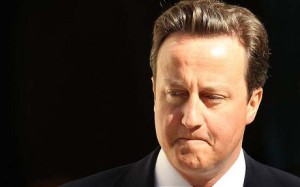
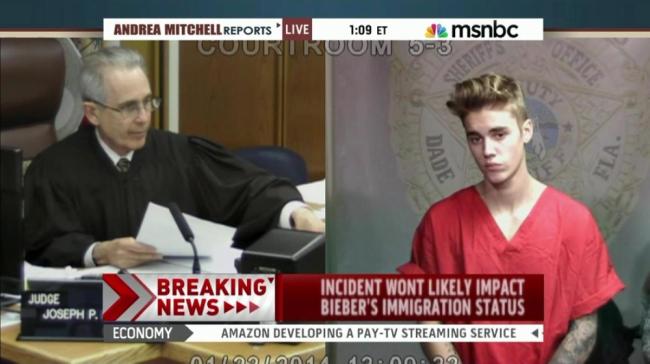
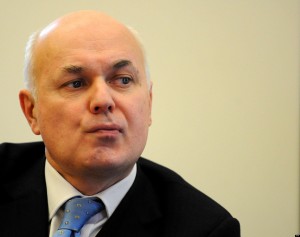

 First of all I’m not going to pretend that this is an academic study of Thatcherism, this is my own personal take on what I recall of her government and it long-term effects. I am writing this as my own contribution to the discussions being had about her legacy since her death. It is also a reaction to a trend I see developing of some people now describing themselves as ‘Thatcherite’, some of whom may not realise the ramifications of appropriating such a tag.
First of all I’m not going to pretend that this is an academic study of Thatcherism, this is my own personal take on what I recall of her government and it long-term effects. I am writing this as my own contribution to the discussions being had about her legacy since her death. It is also a reaction to a trend I see developing of some people now describing themselves as ‘Thatcherite’, some of whom may not realise the ramifications of appropriating such a tag.

